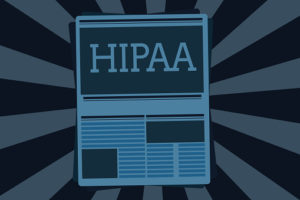Best Practices for HIPAA Encryption Compliance

The Health Insurance Portability and Accountability Act (HIPPA) of 1996 required the U.S. Department of Health and Human Services (HHS) to develop regulations and guidelines to protect the privacy and security of patient health information (PHI). Prior to HIPPA, there was no acceptable security standards to protect sensitivity PHI in the health industry. As healthcare industries started adopting technologies in their practices, PHI was no longer shared between healthcare providers, insurance, or patients using paper. Patient health information could now be shared by fax, phone, e-mails, digital photocopy, or stored on computer servers. The ability to share information easily could jeopardize sensitive PHI if it was misused or abused. For this reason, the HIPPA act was passed prevent misuse and abuse of sensitivity PHI. The HIPPA act security rules applies broadly to the health industry for anyone who uses, store, or share PHI. They must apply necessary security measures to secure the integrity of patient information.
Is HIPAA data encryption required?
In today’s digital landscape, a vast amount of PHI is transmitted and stored on computers. Since the inception of HIPPA, the use of computers was not as prolific as today. Data encryption technologies and standards have advanced beyond the technologies available in 1996. HIPAA encryption isn’t technically mandatory under the HIPPA. However, HSS does stipulate that encryption should be implemented if it would safeguard electronic PHI. For this reason, data encryption is reasonable and appropriate method to safeguard PHI.
What is HIPPA encryption?
Data encryption prevents unintended users to access data. Encryption converts readable text into encoded text. Encryption algorithm encrypts the data into unreadable data. Only people with the appropriate keys can unlock and access the data. Encrypting data is a very effective method to prevent unintended or unauthorized access of PHI. For this reason, the healthcare industry best practices require that PHI is encrypted using the latest industry leading standards. The main thing that encryption mitigates is unauthorized access to information, especially on lost or stolen devices.
There are a number of best practices for managing HIPPA encryption solutions?
- User Authentication Nearly all HIPAA encryption solutions hold in common is that users need to authenticate themselves before they are granted access to encrypted PHI data. This type of user authentications usually includes username, password, or biometrics. To ensure strong user authentication, a two-factor authentication method would be ideal to verify the user requesting access is who they are by showing a second form of security.
- File Encryption. As simple as it sounds, file encryption enables users to encrypt specific files and folders with a unique key. File encryption usually involves encrypting the files, folders, or data that is stored on a local computer or remote server. This means the information is not available to anyone who uses the computer or access a remote server. The files are protected regardless of where they are stored. File encryption can mitigate HIPPA security issues regarding of malware or remote access to PHI.
- Secure file transfer The most efficient way to share PHI is through data transfer. Data is designed to move between departments, hospitals, or insurance companies. Securing file transfer can safe guard PHI from unintended exposure or sharing with the wrong recipient. SSL is a secure transfer tunnel that encrypts the moving data. This prevents someone from intercepting the data as it is routed through the internet.
HIPAA compliance is more than data encryption. Here at Datafied, we take security seriously. Call and speak to our product and service specialist to discuss how we can meet your health data needs at 800-765-7510.









